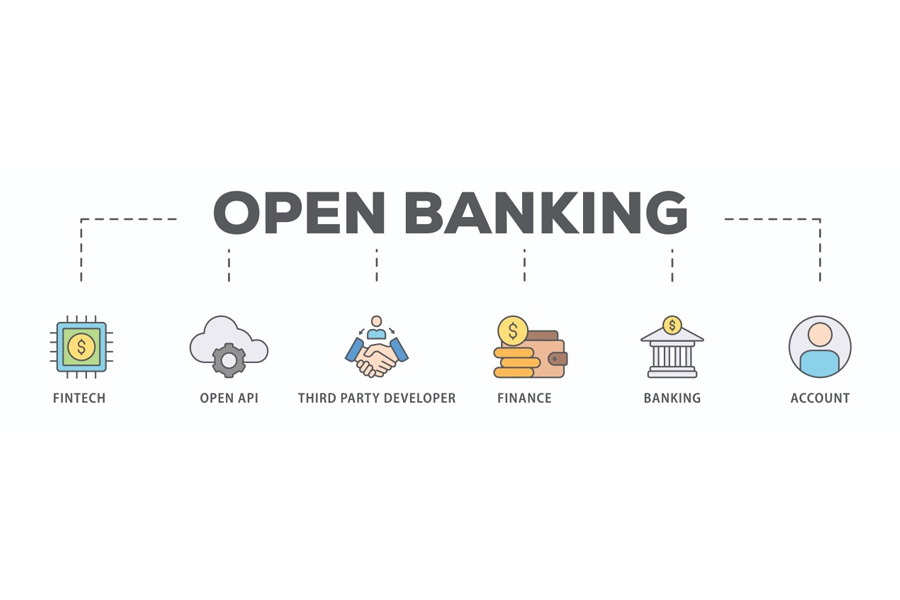
Strategies for small businesses to maximize benefits from open banking
In the rapidly evolving financial landscape, open banking stands out as a transformative force, particularly for small businesses looking to drive growth and enhance operational efficiency. By facilitating secure, consented access to financial data, open banking opens up a realm of opportunities for small businesses to streamline their financial processes, improve decision-making, and unlock new avenues for growth. This blog post delves into actionable insights for small businesses aiming to leverage open banking to their advantage, focusing on strategies that go beyond conventional wisdom.
Integrating financial management tools
Automate financial operations:
Small businesses can significantly benefit from integrating their banking data with advanced financial management tools. Open banking enables seamless connectivity between bank accounts and accounting software, automating tasks such as bookkeeping, invoicing, and payroll.
Efficiency gains:
By automating these processes, businesses can reduce manual errors, save time, and ensure financial data is up-to-date and accurate. For instance, platforms like xero and quickbooks offer open banking integrations that streamline accounting workflows and financial reporting.
Enhancing cash flow management
Real-time visibility into finances:
Open banking provides small businesses with real-time access to their financial data across multiple banks and accounts. This visibility is crucial for effective cash flow management, allowing businesses to monitor their financial health closely and make informed decisions.
Cash flow forecasting:
Utilizing financial management apps that leverage open banking data can help businesses forecast cash flow with greater accuracy. Tools that analyze transaction patterns and predict future cash positions can be invaluable for planning and avoiding potential cash shortfalls.
Accessing tailored financial products
Customized lending solutions:
Open banking democratizes access to financial products by enabling lenders to offer more personalized and flexible financing options. Small businesses can benefit from loans and credit facilities tailored to their specific needs and financial health, as assessed through their banking data.
Example:
fintech lenders like kabbage utilize open banking data to assess a business’s creditworthiness more holistically, offering lines of credit that reflect the business’s actual financial performance and potential.
Leveraging data for business insights
Informed decision-making:
The wealth of financial data unlocked by open banking can provide small businesses with deep insights into their operations. Analyzing this data can uncover trends, opportunities, and areas for improvement, driving strategic decision-making.
Competitive analysis:
Some open banking platforms offer benchmarking tools, allowing businesses to compare their financial performance against peers. This can help identify competitive advantages or areas where efficiency gains are possible.
Improving customer experiences
Personalized services:
Open banking not only streamlines a business’s financial operations but also enhances its ability to offer personalized customer experiences. By understanding customers’ financial behaviors and preferences, businesses can tailor their offerings, payment terms, and marketing strategies.
Loyalty and rewards:
For instance, businesses can integrate loyalty programs with open banking data, offering rewards and discounts based on customers’ spending habits, thereby fostering loyalty and encouraging repeat business.
Navigating challenges and ensuring security
Data privacy and security:
While open banking offers numerous benefits, small businesses must navigate challenges related to data privacy and security. It’s essential to partner with reputable providers and ensure that all data sharing is compliant with relevant regulations, such as gdpr in europe.
Consumer consent:
Ensuring transparent communication with customers about how their data is used and obtaining their informed consent is crucial for building trust and maintaining a positive relationship.
Conclusion
Open banking presents a unique opportunity for small businesses to enhance their financial management, gain valuable insights, access customized financial products, and offer personalized customer experiences. By adopting open banking solutions and leveraging the strategies outlined above, small businesses can position themselves for growth and success in the digital age. As the open banking ecosystem continues to evolve, staying informed and agile will be key to maximizing its potential benefits.



